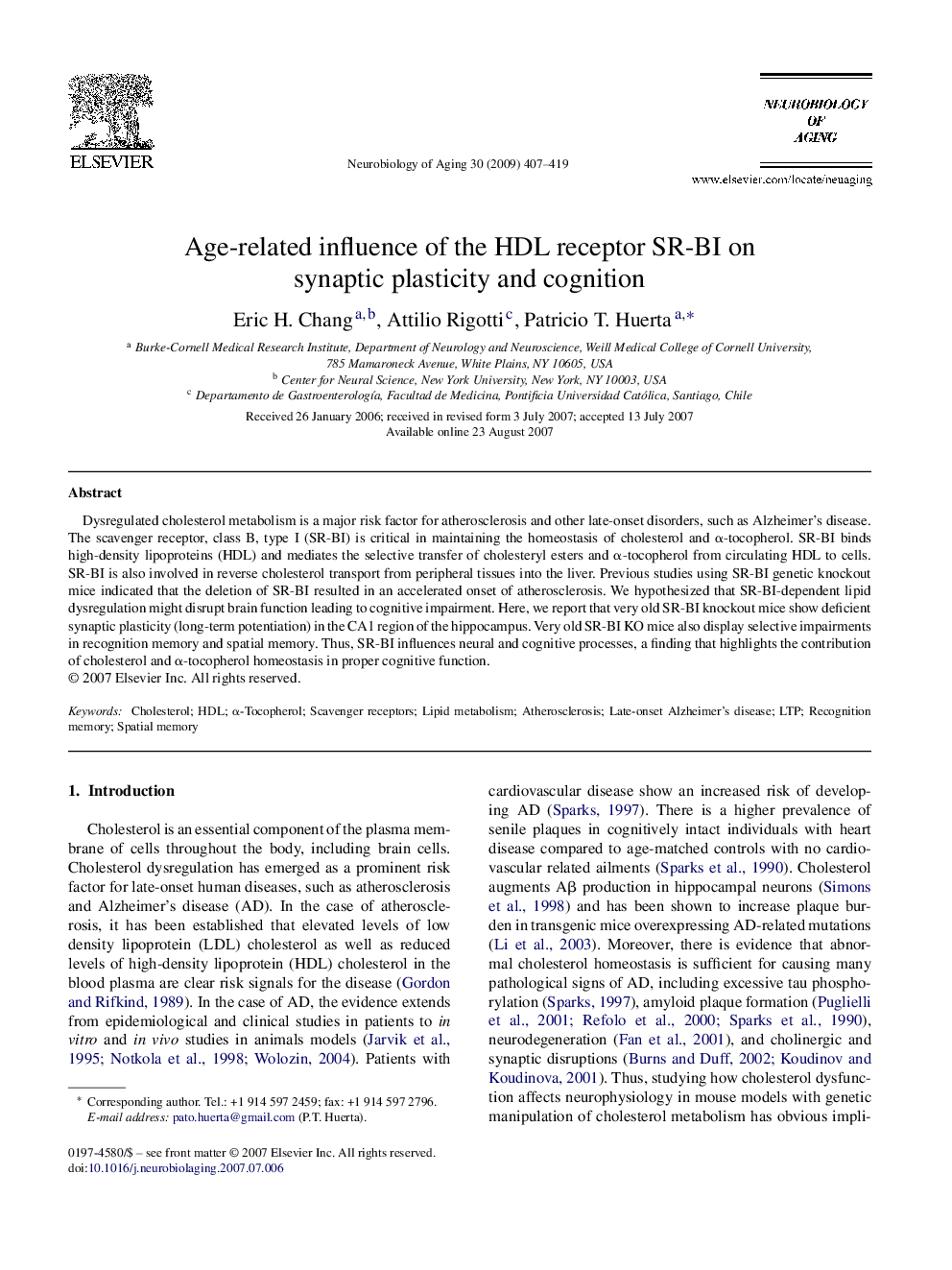| Article ID | Journal | Published Year | Pages | File Type |
|---|---|---|---|---|
| 330304 | Neurobiology of Aging | 2009 | 13 Pages |
Dysregulated cholesterol metabolism is a major risk factor for atherosclerosis and other late-onset disorders, such as Alzheimer's disease. The scavenger receptor, class B, type I (SR-BI) is critical in maintaining the homeostasis of cholesterol and α-tocopherol. SR-BI binds high-density lipoproteins (HDL) and mediates the selective transfer of cholesteryl esters and α-tocopherol from circulating HDL to cells. SR-BI is also involved in reverse cholesterol transport from peripheral tissues into the liver. Previous studies using SR-BI genetic knockout mice indicated that the deletion of SR-BI resulted in an accelerated onset of atherosclerosis. We hypothesized that SR-BI-dependent lipid dysregulation might disrupt brain function leading to cognitive impairment. Here, we report that very old SR-BI knockout mice show deficient synaptic plasticity (long-term potentiation) in the CA1 region of the hippocampus. Very old SR-BI KO mice also display selective impairments in recognition memory and spatial memory. Thus, SR-BI influences neural and cognitive processes, a finding that highlights the contribution of cholesterol and α-tocopherol homeostasis in proper cognitive function.
